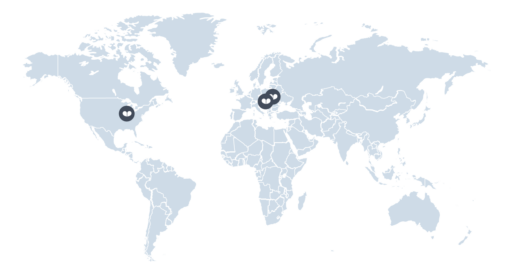For companies aiming to grow their brand in today’s society, showcasing a commitment to inclusion, diversity and ethics can be an important success factor. With increasingly diverse and multicultural target groups – and a shift in consumers’ expectations – there is a growing emphasis on diversity and inclusion that presents new challenges for marketing decision makers.
A diversity and inclusion marketing approach will enable you to reach a broader customer base and promote a positive brand image. In this article, we explain what diversity marketing is and the importance of diversity and inclusion in marketing. We present various strategies and use examples of diversity marketing to show how these strategies can be implemented in practice.
What is diversity marketing?
Diversity marketing is an approach that aims to integrate the diversity of society into marketing activities. In order to represent and address a broad and diverse target group, it takes into account different demographic, cultural and social backgrounds.
Diversity marketing goes beyond traditional market segmentation; not only identifying different target groups, but also understanding and targeting their interests. It involves adapting messages, images and channels to ensure that all groups in our society are represented and valued.
While diversity marketing has an external focus – addressing the diversity of target groups and ensuring that marketing strategies address all potential customers respectfully – diversity management focuses on the internal company structure; in other words, creating an inclusive work culture that supports the diversity of the workforce. Both approaches help promote a positive brand image.
Goals and benefits of diversity marketing
Bringing diversity marketing into your strategy can significantly expand your reach. By appealing to different target groups, you can reach people who may not have previously been attracted to your brand. Another benefit is the improvement of your brand image; brands that promote diversity and inclusion are perceived as progressive and responsible.
Why is diversity marketing important?
In a diverse society, consumers expect brands to reflect their values and identities. People want to recognize themselves in the brands they support. By implementing diversity marketing, your company demonstrates that it understands and respects these expectations.
The importance of diversity and inclusion in marketing
Diversity and inclusion are two terms that are often used together but have different meanings. Diversity refers to the variety of characteristics within a group, such as gender, ethnicity, age, sexual orientation, disabilities and cultural background. Inclusion, on the other hand, means creating an environment in which all individuals are valued and respected and can contribute on an equal footing.
Why are diversity and inclusion important in marketing?
As a marketer, you know that consumer expectations are changing: Target groups are now more diverse than ever, and they expect brands to reflect this diversity. By considering diversity and inclusion in your marketing, you can ensure representation of different groups and appeal to a wider audience. This will naturally increase customer loyalty as more people recognize themselves in your brand and want to support it.
Diversity and inclusion also offer economic benefits. Studies have shown that diverse teams are more creative and successful. A diverse marketing strategy can open up new market opportunities and boost your company’s growth.
Challenges in implementing diversity marketing
Despite its clear benefits, implementing diversity and inclusion in marketing can be challenging. For one thing, unconscious biases can make it difficult to develop inclusive campaigns. It’s important to recognize these biases, and to overcome them through training and awareness-raising activities.
The complexity and cost of adapting marketing strategies to different target groups can also be a challenge. This is where structured planning and the use of software such as MARMIND can help you work in an efficient and targeted manner.
Strategies for inclusive marketing
When carried out with too little planning, diversity marketing can easily attract criticism. Consumers are sensitive to social issues in marketing and often recognize when diversity marketing is only being used to cultivate a brand’s image.
The right strategy will determine the success of your marketing. In order to set up comprehensive diversity strategies for your company, you should consider the following approaches.
Analysis and research
An effective diversity marketing strategy begins with a thorough target group analysis. You should understand the demographics, cultural backgrounds and characteristics of your target groups. Use data and research to identify market segments that may have been neglected.
Creative and inclusive campaign development
When developing your marketing campaigns, make sure that your promotional materials reflect the diversity of your target audience. This means using images, videos and text that represent different ethnicities, age groups, genders and other demographics. Software such as MARMIND can help you plan your marketing campaigns efficiently. Take a look here to see what MARMIND can do for your marketing planning.
Cross-channel approaches
Another important aspect of diversity marketing is choosing the right communication channels. To ensure a broad reach, use a mix of traditional and digital media to spread your message. Social media and influencer marketing offer particularly effective platforms for reaching diverse target groups. MARMIND helps companies strategically plan omnichannel campaigns with ease.
Implementing feedback
To ensure that your diversity marketing strategy hits the mark, it’s a good idea to continuously gather feedback from your target group and adapt your campaigns accordingly. Use surveys, focus groups and social media interactions to measure the response to your marketing efforts and identify potential areas for improvement.
Successful diversity marketing campaigns
Diversity in advertising – best practices
Inclusive marketing is already being successfully implemented by many major brands. Here are some inspiring examples:
- Coca-Cola – “Taste the Feeling”: This global campaign featured people of different ethnicities, ages and lifestyles. Coca-Cola used universal moments and emotions that connect people worldwide and ensured everyone felt represented in the advertising.
- Nike – “Dream Crazier”: Nike put strong women front and center in this campaign, celebrating their challenges and successes. By including female athletes with different backgrounds and abilities, Nike demonstrated its support for diversity and inclusion in sport.
- Dove – “Real Beauty”: With this campaign, Dove set out to promote a realistic and inclusive image of beauty. The ad featured women of all shapes, sizes and ages, which led to a global discussion around beauty ideals and positioned the brand as a pioneer in terms of inclusion.
What makes diversity marketing successful?
- Authenticity: These brands managed to appear authentic and credible. They featured real people and real stories, which was well received by consumers.
- Diverse representation: By representing a wide range of individuals and communities, these campaigns showed that the brands value and support diversity.
- Emotional connection: These campaigns utilized universal emotions and experiences to create a strong connection with viewers, helping the brands appeal to a broad and diverse audience.
- Cultural sensitivity: It is crucial to understand and respect cultural and social contexts. Brands need to ensure that their messages and images are not misunderstood or perceived as offensive.
- Feedback and test runs: Campaigns should be thoroughly tested prior to publication in order to avoid potential misunderstandings. Here, it’s important to centralize the management of your campaigns using the right software, such as MARMIND.
- Quick reaction: If a mistake does happen, it’s important to react quickly and take responsibility. An open apology and a willingness to learn from mistakes can help to win back consumers’ trust.
Implementing these points is not always straightforward. It can be easy to lose track of the budget, results and multiple aspects involved in campaigns. MARMIND gives you more control and overview of your marketing efforts, combining planning, budgets and results in one central dashboard.
Conclusion and outlook
Diversity marketing is an important strategy for meeting the diverse expectations of today’s consumers. It’s about reflecting the diversity of society in aspects of marketing and ensuring that all stakeholders feel represented and valued. By taking targeted measures to promote diversity and inclusion, you can not only increase your reach, but also build a strong, positive brand image.
The trend toward more diversity and inclusion in marketing will continue to grow in the coming years, reinforced by social and demographic changes. Consumers increasingly expect brands to reflect their values and identities and play a positive role in society.
Brands that actively promote diversity and inclusion are not only supported by a wider audience, but also perceived as being innovative and future-oriented. For consistent messaging, your marketing must follow a clear line. MARMIND, the leading marketing resource management software for large companies, can help you manage all your marketing activities in one place. Watch our demo video here.
Frequently asked questions about diversity marketing
What is a diversity strategy?
A diversity strategy is an approach that aims to integrate and promote diversity in all areas of a company. This includes taking measures to create an inclusive corporate culture that respects and values all employees, regardless of gender, ethnicity, age, sexual orientation and other characteristics.
What exactly does diversity mean?
Diversity refers to the variety of individual differences and similarities that people share. This includes gender, ethnicity, age, religion, sexual orientation, abilities and socioeconomic background. This diversity is seen as a strength that brings different perspectives and ideas to a company
What is diversity management?
Diversity management refers to the strategic and systematic integration, promotion and utilization of diversity in a company. The aim is to create a working environment in which all employees can make the best possible use of their skills and potential. This includes awareness-raising initiatives, training, and the adaptation of company processes.
What are the benefits of diversity marketing?
Diversity marketing enables companies to reach a broader target group, improve their brand image and strengthen customer loyalty. It promotes innovation and creativity, since diverse perspectives are incorporated into the marketing strategy. It also demonstrates social responsibility and increases competitiveness.
What challenges are there when implementing diversity marketing?
Challenges include unconscious bias, the complexity of targeting and the higher cost of adapting marketing materials. It takes careful planning and training to overcome these challenges and develop an authentic and effective diversity strategy.
Why is diversity important?
In the corporate context, diversity fosters innovation and creativity as different perspectives lead to new and unique solutions. It also strengthens brand image and customer loyalty, as companies are perceived as socially responsible and progressive.










